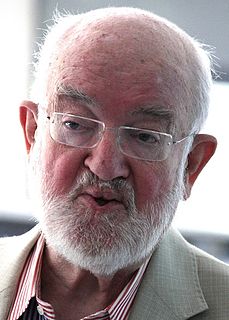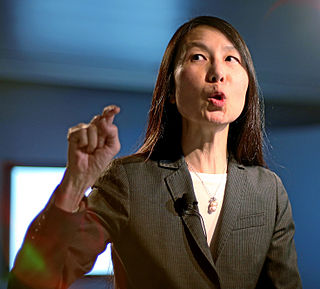
Sir Charles Antony Richard Hoare, is a British computer scientist. He developed the sorting algorithm quicksort in 1959/1960. He also developed Hoare logic for verifying program correctness, and the formal language communicating sequential processes (CSP) to specify the interactions of concurrent processes and the inspiration for the occam programming language.

Jonathan P. Bowen FBCS FRSA is a British computer scientist.
The B method is a method of software development based on B, a tool-supported formal method based on an abstract machine notation, used in the development of computer software. It was originally developed in the 1980s by Jean-Raymond Abrial in France and the UK. B is related to the Z notation and supports development of programming language code from specifications. B has been used in major safety-critical system applications in Europe. It has robust, commercially available tool support for specification, design, proof and code generation.
Jean-Raymond Abrial is a French computer scientist and inventor of the Z and B formal methods.
In computer science, formal specifications are mathematically based techniques whose purpose are to help with the implementation of systems and software. They are used to describe a system, to analyze its behavior, and to aid in its design by verifying key properties of interest through rigorous and effective reasoning tools. These specifications are formal in the sense that they have a syntax, their semantics fall within one domain, and they are able to be used to infer useful information.
Clifford "Cliff" B. Jones is a British computer scientist, specializing in research into formal methods. He undertook a late DPhil at the Oxford University Computing Laboratory under Tony Hoare, awarded in 1981. He also worked with Dines Bjørner and others on the Vienna Development Method (VDM) at IBM Laboratory Vienna.

Professor Dines Bjørner is a Danish computer scientist.
Zhou Chaochen is a Chinese computer scientist.
Professor James Charles Paul Woodcock FREng FBCS CEng CITP is a British computer scientist.
He Jifeng is a Chinese computer scientist.

Michael J. Butler is Professor of Computer Science at the University of Southampton, England.
Johannes Aldert "Jan" Bergstra is a Dutch computer scientist. His work has focussed on logic and the theoretical foundations of software engineering, especially on formal methods for system design. He is best known as an expert on algebraic methods for the specification of data and computational processes in general.

Jeannette Marie Wing is Avanessians Director of the Data Sciences Institute at Columbia University, where she is also a professor of computer science. Until June 30, 2017, she was Corporate Vice President of Microsoft Research with oversight of its core research laboratories around the world and Microsoft Research Connections. Prior to 2013, she was the President's Professor of Computer Science at Carnegie Mellon University, Pittsburgh, Pennsylvania, United States. She also served as assistant director for Computer and Information Science and Engineering at the NSF from 2007 to 2010.
Professor Andrew Martin is a British computer scientist, Deputy Director and lecturer in Software Engineering Programme at the University of Oxford, England. He is a member of the Oxford University Department of Computer Science. He is the director of Oxford University's Centre for Doctoral Training in Cyber Security.
Charles Carroll Morgan is an American computer scientist who moved to Australia in his early teens. He completed his education there, including a PhD degree from the University of Sydney, and then moved to the United Kingdom in the early 1980s. In 2000, he returned to Australia.

Jeremy Gibbons is a Computer Scientist and Professor of Computing at the University of Oxford. He serves as Deputy Director of the Software Engineering Programme in the Department of Computer Science, Governing Body Fellow at Kellogg College and Pro-Proctor of the University of Oxford.
Martin Wirsing is a German computer scientist, and Professor at the Ludwig-Maximilians-Universität München, Germany.
Prof. Steve Schneider FBCS, CITP is an English computer scientist and Professor of Security. He is Director of the Surrey Centre for Cyber Security and Associate Dean at the University of Surrey.












